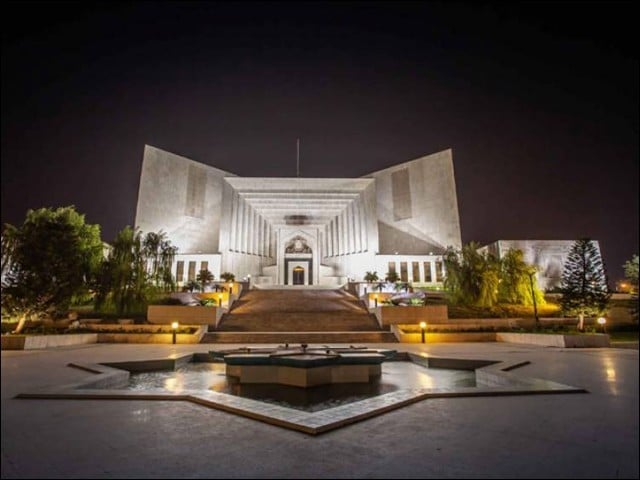Doctrine bars judges from questioning constitution of bench, says Justice Shahid Waheed
Justice Waheed dissents from Justices Isa and Aminuddin's majority verdict in suo motu case

Dissenting with the majority judgment of Justice Qazi Faez Isa and Justice Aminduddin Khan, Supreme Court's (SC) Justice Shahid Waheed held on Thursday that any member of the bench, after having accepted the administrative order of the Chief Justice of Pakistan (CJP), is estopped to question the constitution of the bench on the well-known doctrine of estoppel.
The apex court judge made the remarks in a suo motu case related to granting 20 additional marks to a Hafiz-e-Quran student seeking admission to MBBS or BDS programmes.
“None of the judges of this bench can object to the constitution of the bench, and if they do so, their status immediately becomes that of the complainant, and consequently, it would not be appropriate for them to hear this case and pass any kind of order thereon,” stated Justice Waheed.
Read SC moved to hold provincial, general elections on same day
He furthered that “this reasoning has the backing of the basic code of judicial ethics, to wit, no man can be a Judge in their own cause. It is important to state here that this principle confines not merely to the cause where the Judge is an actual party to a case, but also applies to a case in which he has an interest.”
Justice Waheed noted that the bench in the suo moto case “has been lawfully constituted to hear this case”.
The development comes a day after the country’s top court held that all cases that various Supreme Court benches are hearing under Article 184(3) of the Constitution be postponed until amendments are made in the Supreme Court Rules, 1980, regarding the discretionary powers of the chief justice of Pakistan (CJP).
Read more President questions timing of judicial reforms
A three-judge special bench of the Supreme Court issued the order with a vote of 2 to 1, while hearing a suo motu case related to grant of 20 additional marks to a Hafiz-e-Quran student seeking admission to MBBS or BDS programmes.
The ruling came as the National Assembly a day earlier unanimously passed the Supreme Court (Practice and Procedure), Bill 2023, curbing the CJP’s suo motu powers.
Authoring the majority judgment, Justice Isa noted that neither the constitution nor the SC rules give the CJP the power to make special benches or decide as to which judge will be on a certain bench.



1733130350-0/Untitled-design-(76)1733130350-0-208x130.webp)















COMMENTS
Comments are moderated and generally will be posted if they are on-topic and not abusive.
For more information, please see our Comments FAQ